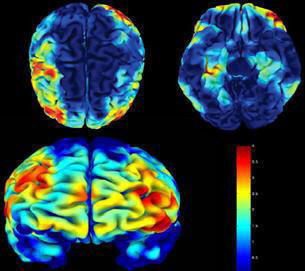|
Information for
Clinicians and Researchers
To refer a patient to a depression
research study in the MDRP:
- Clinicians can contact us by phone: 646-774-8000
- or by email ( desdesk@nyspi.columbia.edu )
- patients can also contact us directly
regarding eligibility for our current studies
Current studies include:
Desvenlafaxine vs. Placebo for Chronic Depression
We are studying a new antidepressant
medicine, desvenlafaxine, for the treatment of people with chronic
depression
Desvenlafaxine (trade name Pristiq) was
recently approved by the FDA for the treatment of major depression. We
are testing whether this medeicine is also effective for adults with a
form of
chronic depression called dysthymic disorder (or dysthymia).
Dysthymic disorder is one of the types of what the DSM-5 calls
Persistent Depressive Disorder, or PDD. PDD includes several forms of
chronic depression, including chronic major depression and dysthymia.
Regardless of sub-type, chronic depression,
lasting two or more
years, often causes significant suffering and impairment. Our study
involves a 6 to 12 week double-blind initial phase during which half of
the participants will take the new medication and half will take a
placebo (an inactive look-alike pill). After the initial phase, a
12-week continuation phase will begin, during which all subjects can be
treated with an FDA-approved antidepressant medication. Following this,
all subjects are eligible to receive an additional 3 months of open
treatment
Eligible subjects may also receive MRI
scans, to help us understand how antidepressants work in treating
depression.
|
|
1. Erickson G, Hellerstein DJ. Behavioral Activation
Therapy for remediating persistent social deficits in medication-responding
chronic depression. Journal of Psychiatric Practice 2011;17:161-169
2. Hellerstein
DJ, Stewart JW, McGrath PJ, Deliyannides D, Batchelder ST, Black S, Withers A,
O’Shea D, Chen Y. Duloxetine vs. placebo in treatment of chronic non-major
depression. J Clinical Psychiatry 2012; 73:984-991
3.
Posner J, Hellerstein DJ, Klahr K, Stewart JW, McGrath PJ, Peterson BS.
Antidepressants normalize the default mode network in patients with
dysthymia. JAMA Psychiatry 2013;70(4):373-382
4. Bruder GE, Keilp J, Alvarenga J, Alschuler D, Abraham K, Hellerstein DJ,
Stewart JW, McGrath PJ. Psychomotor slowing as a differential predictor of
clinical response to antidepressants. Biological Psychiatry 2013;73(9):160S
5. Stewart JW, McGrath PJ, Blondeau C, Deliyannides DA, Hellerstein DJ, Norris S,
Amat J, Pilowski D, Tessier P, Laberge L, Chen Y, Withers A, Bergeron R.
Combination antidepressant therapy for major depressive disorder: speed and
probability of remission. Journal of Psychiatric Research 2014
|
